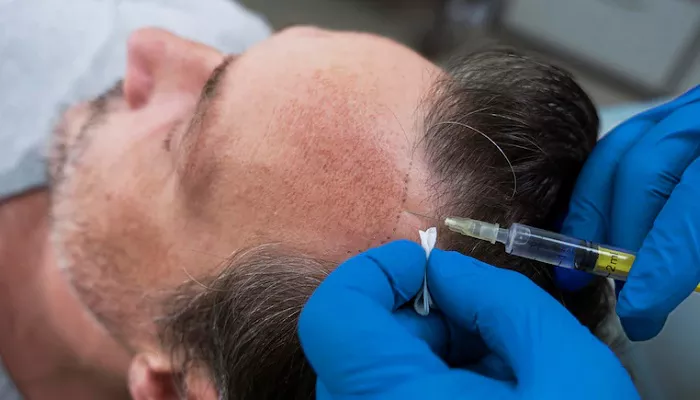Hair transplant surgery has surged in popularity over the past decade as a trusted solution for hair loss, embraced by celebrities and everyday individuals alike. However, a recent tragic incident in Kanpur, Uttar Pradesh, raises critical questions about the safety of the procedure when performed under unqualified hands.
Two engineers lost their lives within 24 hours of undergoing hair transplants at a private clinic, turning what is typically considered a routine cosmetic procedure into a fatal outcome. While death following hair transplant surgery is exceedingly rare, the incident underscores the importance of choosing qualified medical professionals and reputable clinics.
What Happened?
The tragedy came to light after one victim’s wife filed a complaint on the chief minister’s portal, reporting that her husband experienced severe facial swelling and unbearable pain after the procedure, leading to his death the next day. The second man exhibited similar symptoms before also passing away.
Investigations revealed that the procedures were carried out by dentists at Dr. Anushka Tiwari’s Empire Clinic in Kanpur. Additional DCP Vijendra Dwivedi stated that an infection likely developed during the surgery, which went untreated and rapidly deteriorated the patients’ conditions.
Understanding Hair Transplant Surgery
Hair transplant surgery typically involves relocating hair follicles from the back or sides of the scalp to balding areas. According to a study published in Stat Pearls, approximately 67% of men and 24% of women experience hair loss, fueling increasing demand for this procedure.
While generally safe, hair transplants are most suitable for those with male or female pattern baldness and adequate donor hair. Patients with extensive hair loss, scalp scarring, or certain medical conditions may not be ideal candidates.
Are Hair Transplants Safe?
Dr. Aseem Sharma, a dermatologist and director at Skin Saga Centre for Dermatology, emphasized that hair transplant surgery is safe when performed by qualified professionals in accredited facilities. “Complications arise mainly when unqualified individuals perform the procedure in inadequately equipped settings, giving hair transplantation an undeservedly bad reputation,” he explained.
Possible Complications
According to Dr. Sharma, complications such as anesthesia overdose, infections, and tissue necrosis can be avoided with proper technique and sterile conditions. Notably, severe infections, including life-threatening post-streptococcal toxic shock syndrome, have been reported in rare cases following hair transplant surgery.
Can a Hair Transplant Cause Death?
While fatal outcomes are exceptionally rare, improper procedures significantly increase risk. Dr. Sharma advises patients to consult trichologists or certified specialists trained in dermatology or plastic surgery. The Kanpur case, where dentists performed the transplant, highlights the dangers of unqualified practitioners.
What to Consider Before Undergoing a Hair Transplant
Patients should prioritize credentials over cost when choosing a clinic. The National Medical Commission’s 2022 guidelines recommend that only doctors with formal postgraduate training in dermatology or plastic surgery perform hair transplants to ensure ethical standards and patient safety.
While hair transplant cost varies widely depending on the clinic and procedure, prioritizing quality and safety is crucial to avoid complications during hair transplant recovery. Patients should thoroughly research their suitability for surgery and understand all potential risks beforehand.
Dr. Sharma cautions against quick-fix promises or bargain prices, urging prospective patients to verify medical credentials and select certified specialists in accredited surgical environments for the safest outcomes.
Related Topics:
- Does DHI Damage Existing Hair?
- Matteo Lane’s Real-Life Diet and Wellness Philosophy: Key Takeaways
- Identical Triplets Undergo Simultaneous Hair Transplant Surgery to Restore Their Signature Looks


